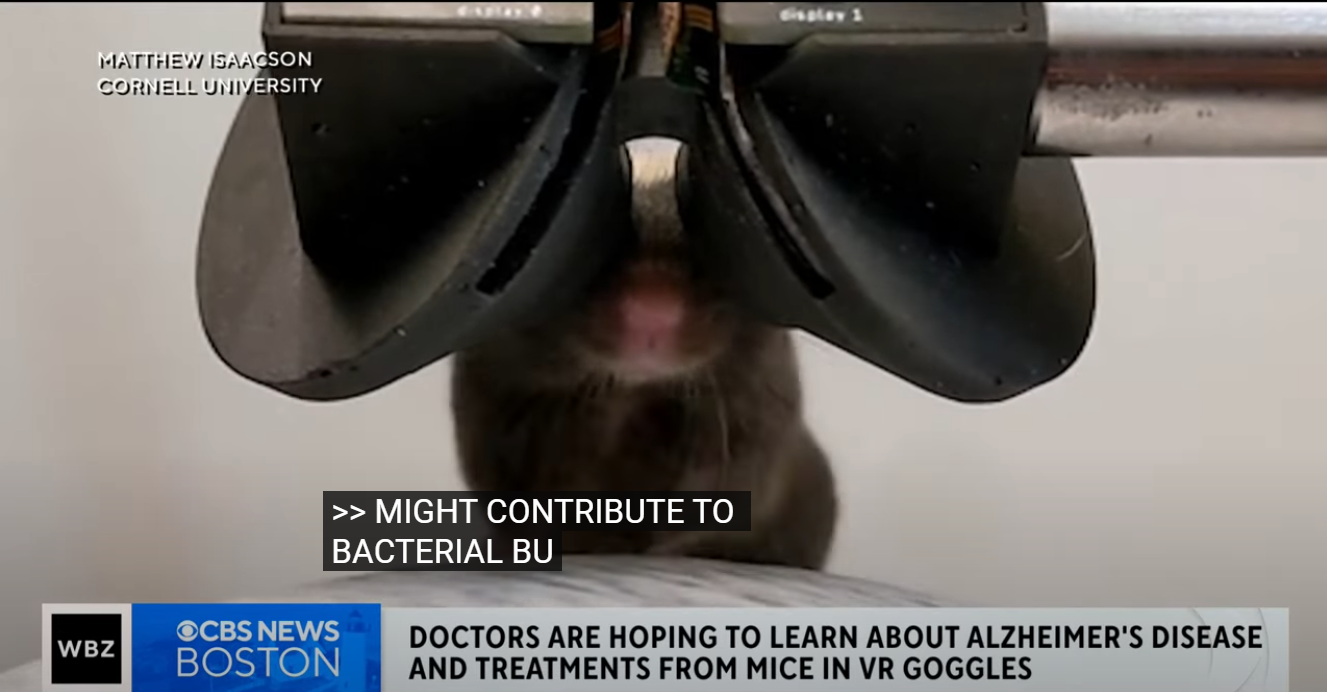In a groundbreaking study that merges technology and neuroscience, researchers at Cornell University have employed virtual reality (VR) headsets on mice to deepen their understanding of memory and spatial navigation. This innovative approach not only highlights the potential of VR in scientific research but also paves the way for novel insights into complex diseases like Alzheimer’s.
The Experiment: Mice in Virtual Worlds
To study how mice navigate spaces and form memories, researchers fitted the rodents with tiny VR goggles. These headsets immerse the mice in a simulated environment, complete with obstacles and potential threats. As the mice maneuver on a spherical treadmill, their movements and reactions to the VR world are meticulously observed and recorded.
The immersive nature of the VR environment effectively tricks the mice into perceiving the simulations as reality. This makes it possible to monitor their spatial behavior in ways that would be challenging in traditional settings. According to the researchers, the ability to “trick” the mice into realistic reactions is a key component in conducting advanced experiments.
Advancing Alzheimer’s Research
One of the primary goals of this research is to gather insights into the workings of memory and spatial navigation, particularly in the context of degenerative diseases like Alzheimer’s. By analyzing how mice navigate the VR environment and respond to simulated challenges, researchers hope to identify patterns and mechanisms that could inform potential treatments for memory-related disorders.
What’s Next for Virtual Reality in Research?
Encouraged by the success of this study, scientists are considering expanding their experiments to include larger rodents such as rats. This could provide an even broader understanding of memory systems across species and help validate findings for human applications.
Ethical Considerations and the Future of VR in Science
The humorous imagery of mice donning tiny VR goggles has sparked both curiosity and ethical discussions about the use of technology in animal research. While the methodology raises questions about animal welfare, the potential benefits of such experiments—especially in understanding debilitating diseases—make it a promising avenue for scientific exploration.
Virtual reality is proving to be a versatile tool, extending far beyond entertainment and gaming. By leveraging VR in neuroscience, researchers are unlocking new possibilities for studying memory and paving the way for breakthroughs in medical science. This study not only showcases the ingenuity of modern research but also reminds us of the vast potential for technological innovation to drive scientific discovery.




0 Comments